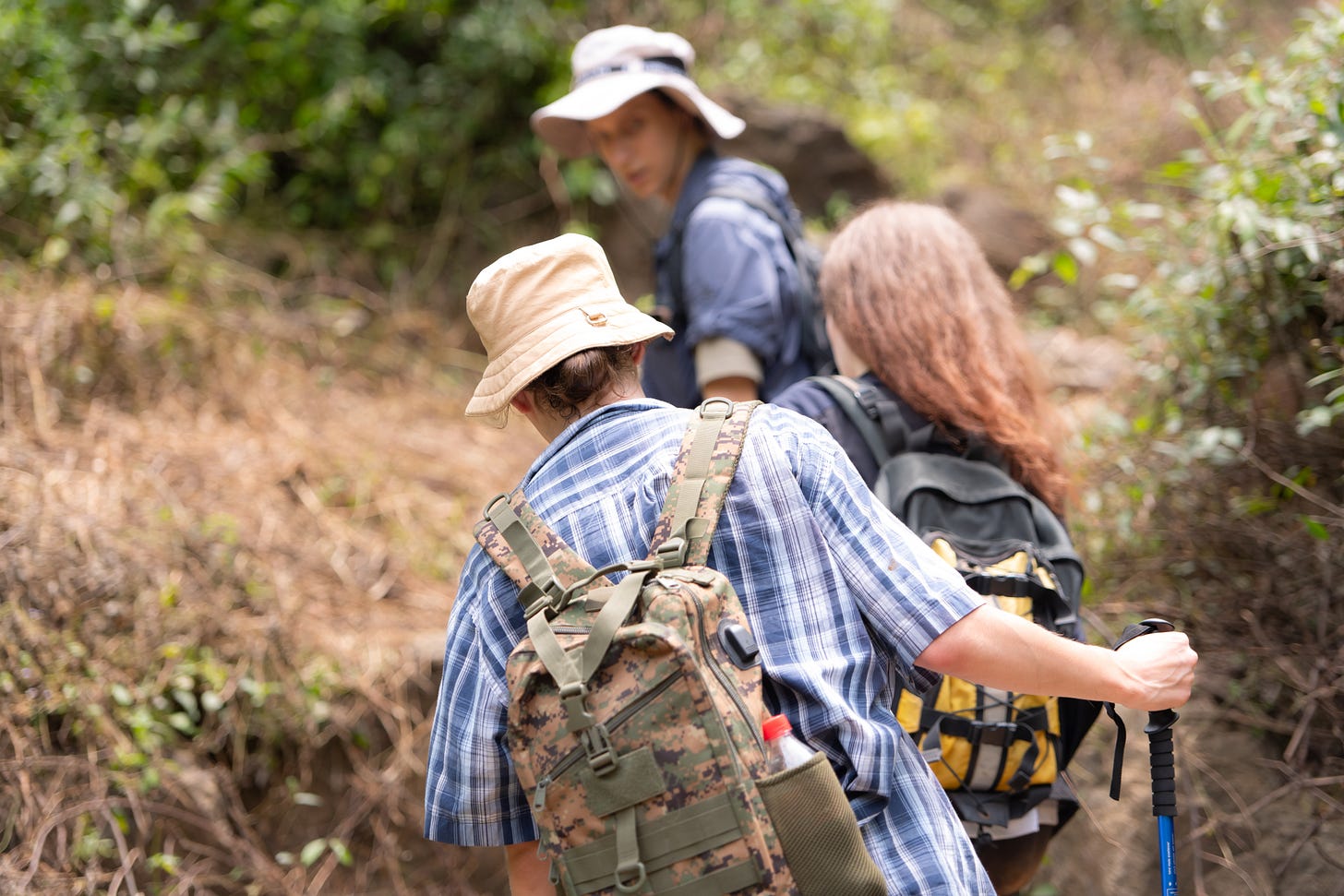Causing a Ruckus With Rucking
Building Community and a Movement on the Trails
We’ve connected with some really awesome people in this group so far. Recently the rucks have been at more diverse locations and challenge levels. This week we’ll have a Level II Ruck at Blanton Ridge Ridgeline Trail, and a Level I Ruck at Doris Ranch on the Middle Fork Willamette Path. Here’s a topo of the Blanton Ridge trail.
Check out our upcoming events here:
Why do we ruck?
In an age where digital interactions often replace genuine human connections, the act of rucking—walking or hiking with a weighted backpack—emerges not just as a fitness activity but as a revolutionary way to build community and skillsets. The Cascadia Response Ruck Club aims to harness this simple yet powerful practice to foster bioregionalism, enhance resilience, and forge new paths for our society. We believe that rucking can galvanize people into a cohesive movement, deeply engaged with both their landscapes and each other.
Building Physical and Mental Resilience
Rucking offers substantial physical and mental health benefits, which form the foundation for building a resilient community. Physically, it enhances cardiovascular health, strengthens muscles, aids in weight management, and improves bone density and joint health. Mentally, it reduces stress, builds resilience, improves mood, and boosts cognitive function. These benefits are crucial for individuals preparing to navigate an uncertain future, where physical endurance and mental toughness will be key.
However, the significance of rucking extends beyond individual health. By bringing people together to participate in this activity, we create opportunities for shared experiences and mutual support, which are vital for community resilience. The physical challenges of rucking—carrying a weighted pack over varying terrain—mirror the collective challenges we face in our efforts to build a sustainable society. Overcoming these challenges together fosters a sense of solidarity and shared purpose.
Fostering Bioregionalism
Bioregionalism emphasizes living in harmony with the natural systems and ecological processes of a specific geographic area. It advocates for local production and consumption, sustainable practices, and a deep connection to the land. Rucking naturally aligns with these principles, as it encourages people to engage with their local environment intimately.
Through the Cascadia Response Ruck Club, participants explore local trails, parks, and natural landscapes, gaining a deeper appreciation for the region's biodiversity and ecological significance. This engagement fosters a sense of stewardship and responsibility towards the environment, encouraging participants to advocate for and implement sustainable practices in their daily lives.
Building a Movement
The Cascadia Response Ruck Club is more than just a fitness group; it is a burgeoning movement aimed at transforming society. By integrating rucking into our activities, we create a platform for people to come together, share ideas, and work towards common goals. This movement is built on the principles of mutual aid, collective resilience, and bioregionalism.
Forging New Paths
Rucking also symbolizes forging new paths, both literally and metaphorically. As participants explore new trails and terrains, they embody the spirit of exploration and discovery. This mindset is crucial for building a society that is adaptable, innovative, and forward-thinking.
By coming together for rucking events, individuals from diverse backgrounds share their perspectives and ideas, sparking creativity and collaboration. These interactions can lead to the development of new strategies for sustainability, community building, and resilience. The act of rucking becomes a catalyst for broader societal change, inspiring participants to think critically about their role in shaping the future.
Consider joining the Cascadia Response Ruck Club to be part of this revolutionary movement. Together, we can build a community that is prepared, resilient, and deeply connected to our bioregion.


